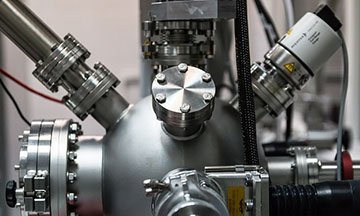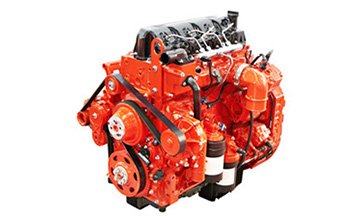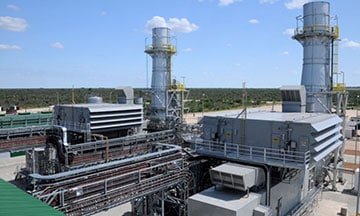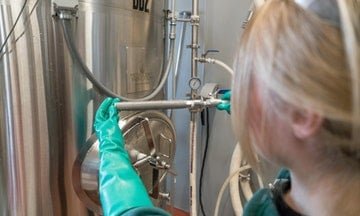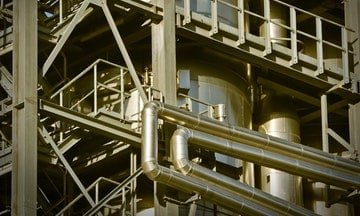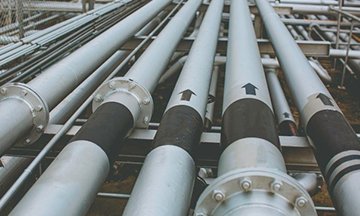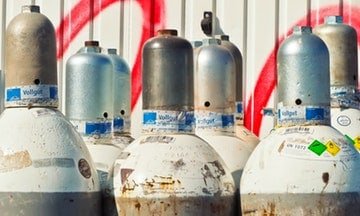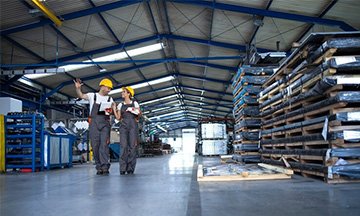Pumps and Compressors, Performance Evaluation, Preventive Maintenance and Troubleshooting
| Date | Venue | Duration | Fees | |
|---|---|---|---|---|
| 20 May - 24 May, 2024 | Amsterdam | 5 Days | $5695 | Register |
| 27 May - 31 May, 2024 | Dubai | 5 Days | $4750 | Register |
| 17 Jun - 21 Jun, 2024 | Dubai | 5 Days | $4750 | Register |
| 29 Jul - 02 Aug, 2024 | Dubai | 5 Days | $4750 | Register |
| 11 Aug - 22 Aug, 2024 | Riyadh | 10 Days | $9150 | Register |
| 12 Aug - 16 Aug, 2024 | Dubai | 5 Days | $4750 | Register |
| 09 Sep - 13 Sep, 2024 | Dubai | 5 Days | $4750 | Register |
| 21 Oct - 25 Oct, 2024 | Dubai | 5 Days | $4750 | Register |
| 04 Nov - 08 Nov, 2024 | Istanbul | 5 Days | $5695 | Register |
| 04 Nov - 08 Nov, 2024 | Dubai | 5 Days | $4750 | Register |
| 23 Dec - 27 Dec, 2024 | Dubai | 5 Days | $4750 | Register |
Course Overview
When a pump is used, fluid is moved from one place to another, whereas a compressor squeezes the volume of a gas and pumps it elsewhere. While pumps work with both liquids and gases, compressors work with gas alone because liquids are difficult to compress. Pump and compressor stations are very much part of the total pipeline system.
Various factors play a role in determining pump and compressor stations. These include size and configuration of drivers, pumps or compressors; climatic conditions; regulatory, environment and safety requirements; and proximity to inhabited areas.
This Zoe training course will empower you with a comprehensive understanding of pump and compressor operations, performance, preventative maintenance and troubleshooting. The knowledge gained through the course will help you assume senior roles within the organisation, thus fostering career progression.
Furthermore, since the course covers all aspects related to pumps and compressors and these find applications in multiple industries, undertaking this course will prepare you for opportunities beyond your current organisation.
Course Objectives
The primary objective of this Pumps and Compressors, Performance Evaluation, Preventive Maintenance and Troubleshooting training course is to empower professionals with—
- a comprehensive understanding of pump and compressor operations, performance, preventative maintenance and troubleshooting
- the necessary experience and confidence to handle any challenge related to pumps and/or compressors
- the experience to closely examine existing machinery employing pumps and/or compressors to check for maintenance or damage control
- the required foresight to predict damages that could pose a serious threat soon, and make changes to ensure that business is not impacted
- adequate confidence and knowledge to train other professionals on pumps and compressors
- the ability to contribute to organisational development through reduced costs and better equipment
- the knowledge and awareness of international standards and protocols to be followed
- the overall skill set and capabilities to manage responsibilities related to pump and/or compressor operations
Training Methodology
At Zoe Talent Solutions, before each training session, the course content is thoroughly reviewed to check for relevance to the professional backgrounds of the training audience. Lectures are delivered by a highly experienced professional from the relevant domain, using audio-visual presentations. Trainees are encouraged to actively participate in the program through role-plays, group projects, case study discussions, etc.
This unique, customisable training format is used by Zoe Talent Solutions for all its courses and is called the Do–Review–Learn–Apply Model.
Organisational Benefits
By professionals enrolling for these Pumps and Compressors, Performance Evaluation, Preventive Maintenance and Troubleshooting course, organisations will derive the following benefits:
- Seamless and efficient pump and compressor operation, performance, preventative maintenance and troubleshooting
- Regular inspections for maintenance and repair
- Continuous staff training to upskill them to work with pumps and compressors at optimal efficiency
- Reduced maintenance costs because of frequent inspections
- Adherence to international standards of safety and quality
- Appropriate choice of the material and type of pump and/or compressor as per the operation
- Better risk assessment and management
- Organisational growth because of reduced costs and better machinery
- Protection against business losses with regular maintenance and repair of pumps and compressors
- Lesser downtimes for failures because of better troubleshooting
Personal Benefits
Professionals registering for this Pumps and Compressors, Performance Evaluation, Preventive Maintenance and Troubleshooting course will derive the following benefits:
- Detailed understanding and knowledge of pump and compressor operation, performance, preventative maintenance and troubleshooting
- Increased confidence and knowledge to conduct regular inspections for proper functioning of pumps and compressors
- Greater understanding and experience to train other professionals on best practices
- Enhanced foresight to review damages, predict future challenges, and make changes so that they do not impact the organisation
- Increased experience and knowledge to ensure that pumps and compressors are running at maximum efficiency
- Greater ability to contribute to organisational growth through better machinery and reduced maintenance and repair costs
- Increased awareness of required standards when working with pumps and compressors
- Enhanced skill set and capabilities to successfully assume pump and compressor operation, thereby demonstrating potential to work in any industry
Who Should Attend?
- Engineers and other staff members working on pumps and compressors
- Vendors of pumps and compressors
- Managers overseeing operations involving pumps and compressors
- Senior members of an organisation responsible for making critical decisions in the organisation
- Compliance officials and quality checkers responsible for ensuring all operations comply with international guidelines
- Safety inspectors responsible for ensuring employee safety
- Finance advisors providing the required expert opinion for purchases related to machinery
- Any other professional who would like to know more about pumps and compressors
Course Outline
The Pumps and Compressors, Performance Evaluation, Preventive Maintenance and Troubleshooting course covers the following areas important to understand pumps and compressors:
Module 1 – Components of a Pump or Compressor Station
- Scrubber or inlet separator to remove liquids
- Filter to remove contaminants
- Gas coolers
- Heater and cooler
- Fuel gas system
- Station flow measurement
- Auxiliary power unit
- Compressed air system
- Power gas system
- High voltage electrical system
- Security system
- Building heating system
Module 2 – Factors Playing a Role in Determining Pump and Compressor Stations
- Size and configuration of drivers and compressors or pumps
- Climatic conditions
- Location relative to support resources
- Regulatory, environmental and safety requirements
- Proximity to inhabited areas
Module 3 – Factors Influencing Selection of Pump or Compressor Unit
- Performance ratings and load cycles
- Installation requirements and constraints
- Configuration options
- Type of energy source
- Maintenance support resources
- Life cycle costs
- Noise and exhaust emission requirements
Module 4 – Types of Compressors
- Positive displacement
- Reciprocating compressors
- Ionic liquid piston compressor
- Rotary screw compressors
- Rotary vane compressors
- Rolling piston
- Scroll compressors
- Diaphragm compressors
- Dynamic
- Air bubble compressor
- Centrifugal compressors
- Diagonal or mixed-flow compressors
- Axial compressors
- Hermetically sealed, open or semi-hermetic
Module 5 – Parameters Assessed for Centrifugal Compressor Performance
- Flows
- Efficiencies
- Heads
- Speeds
Module 6 – Parameters to be Monitored for Compressor Maintenance
- Motor temperature
- Vibration
- Motor current
Module 7 – Air Compressor Troubleshooting Aspects
- Compressor not operating
- Excessive noise during operation
- Knock – same cycle as RPM
- Knock while compressor is loading
- Milky oil in oil reservoir
- Excessive oil consumption
- Oil in discharge air
- Compressor vibration
- Air blowing out of inlet
- Insufficient pressure at point of use
- Excessive belt wear
- Excessive discharge air temperature
- Repeated fuse blows
- Sudden stop of the compressor
Module 8 – Types of Pumps
- Getter-ion or sputter-ion pumps
- Cryopumps
- Sorption pumps
- Non-evaporable getter pumps
- Turbomolecular pumps
Module 9 – Steps of Setting-Up a Centrifugal Pump
- Open valves in auxiliary sealing, cooling, flushing and bypass lines
- Open suction valve
- Close discharge valve
- Prime or vent, as necessary
- Energise the driver
- Open discharge valve
Module 10 – Key Performance Parameters of a Centrifugal Pump
- Head
- Friction head
- Velocity head
- Pressure head
Module 11 – Parameters to be Regularly Monitored for Centrifugal Pump Maintenance
- Suction pressure
- Discharge pressure
- Flow
- Pump speed
- Pump efficiency
- Power
Module 12 – Pump Troubleshooting Aspects
- Little or no discharge
- Loss of suction
- Motor overheating and shutdown
- Pump leak at the shaft
- Excessive noise or vibration of the pump
- Lack of pump prime
- Lack of pump pressure
- Pump not starting
